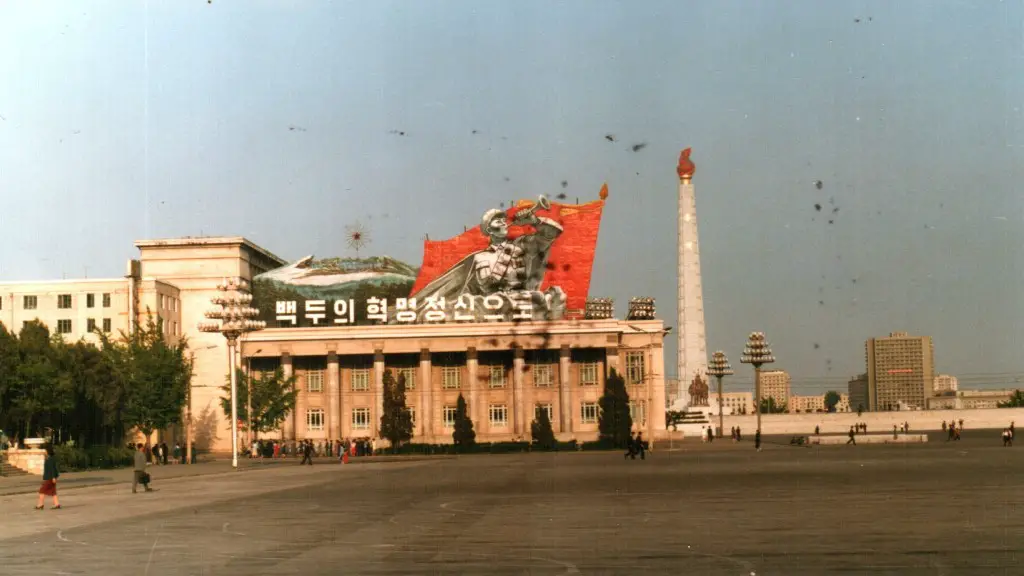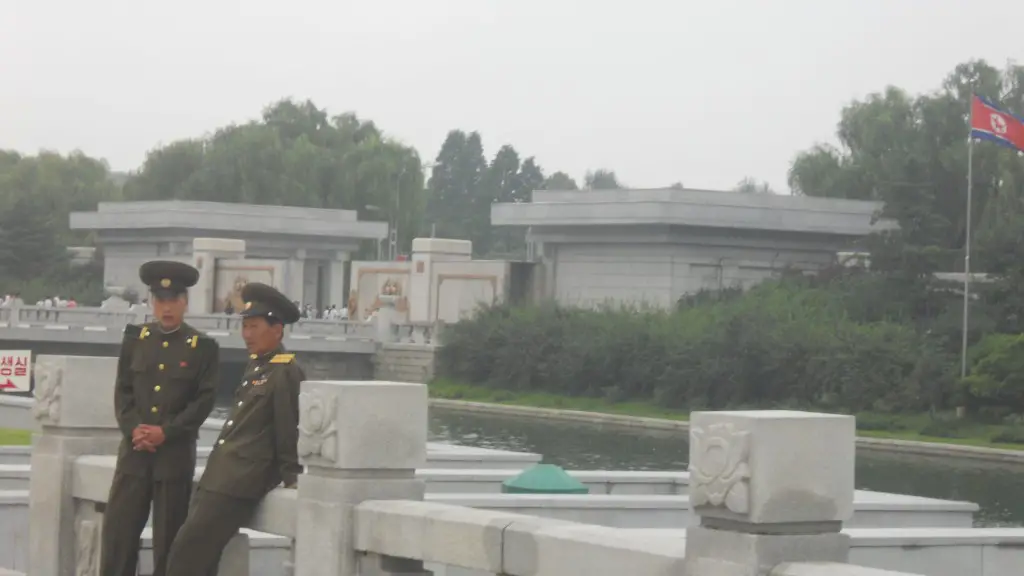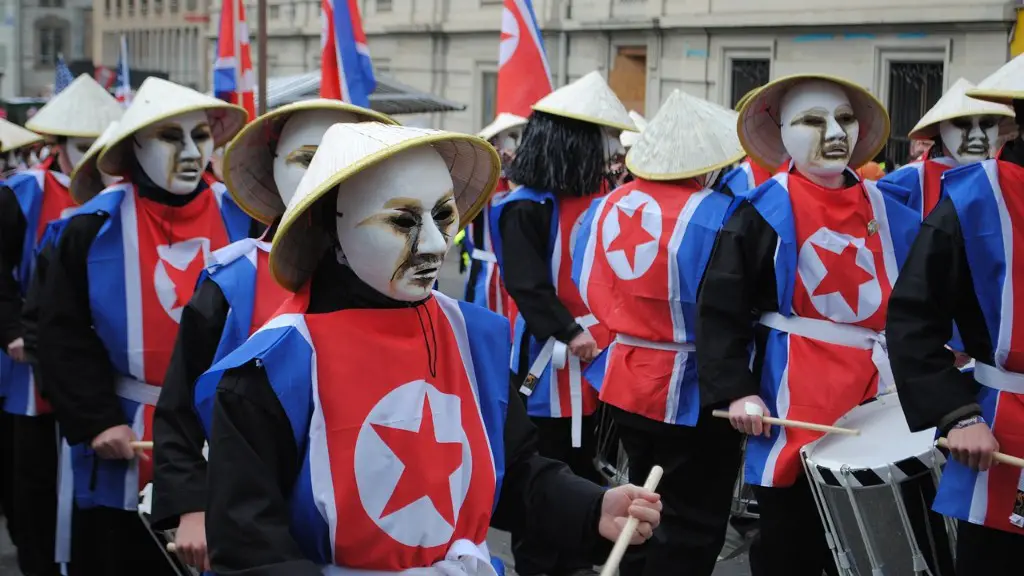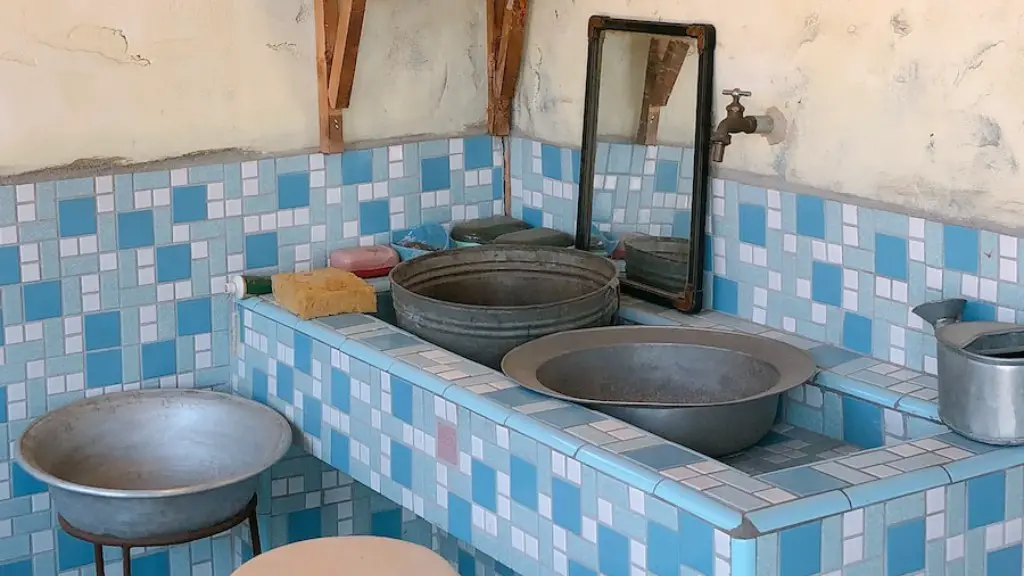Cultural Aspects
Visiting North Korea offers an opportunity to learn about the culture and history of the Hermit Kingdom. The rich history and culture of North Korea has been maintained despite the country being isolated from the rest of the world for several generations. For example, the tradition of kimchi, a spicy fermented vegetable dish, has been passed down through generations of North Koreans. Additionally, the Juche ideology is a key factor of the North Korean state, with citizens being taught the importance of self-reliance. Traditional cultural aspects like singing and dancing are also still present in North Korea, often performed by large ensembles with intricate choreography.
One could even visit sites of great historical significance to Koreans such as the DPRK founder Kim Il Sung’s tomb or Kangso Mineral Spring, one of the nation’s most renowned hot springs. These sites provide an opportunity to learn about aspects of North Korea such as its struggle against imperialism and its commitment to preserving its legacy and culture.
Political Aspects
Amidst a nation of strictly enforced laws and regulations, North Korea highlight the role of government in society. Visiting the country provides an understanding of the roles of the Supreme Leader and the militarization of the government. Pyongyang, the country’s capital, serves as the hub of political power. The mausoleum of former leader Kim Il-Sung is a major tourist destination and monument to the power of the state. Additionally, the Arirang Mass Games showcased with hundreds of thousands of synchronized performers demonstrates the power of the state to mobilize large numbers of citizens.
The adherence to a strictly regulated government system of political control makes the country a unique destination, while the state-run media provides insights into how the government talks to its populace. Analyzing the propaganda being broadcast provides a great insight into how the government is attempting to shape public opinion.
Geographical Aspects
North Korea offers a variety of unique and beautiful natural landscapes. From the capital city of Pyongyang to rural farming towns and villages, the country provides an opportunity to witness the land untouched by modernity and the rapid advances of the 21st century. The untouched and ruggedly beautiful beaches and forests, along with the towering mountains found in many parts of the country, provide visitors with the chance to witness breathtaking natural scenes.
Traveling to mountainous regions such as Mt. Myohyang provides an opportunity to observe the intricate natural formations and beauty of the area up close. With relatively few tourists, the trails are often untouched and filled with a variety of wildlife. North Korea is home to over 400 species of fauna and a wide range of plant life, and Mount Chilbo offers some of the best views of the sea and spectacular sunset and sunrise views.
Social Aspects
The social atmosphere of North Korea can be completely different from what is found in other regions. Residents in the country often live a much simpler life with no luxury items or modern conveniences found in other countries. Even visiting the main cities of North Korea can be an adventure, as mass transit and infrastructure often survive off of singular, antiquated networks that are not updated as frequently.
Although the country is often presented as a highly militarized nation, the daily lives of North Korean citizens can be one of the most distinctive aspects of visiting the nation. Traditional markets, called jangmadang, are still popular in certain regions, offering fresh produce and provisions. Even with the strict regulations on foreign media and relationships with countries outside of its sphere of influence, North Korea continues to provide a culturally rich experience for visitors.
Economic Aspects
The economy of North Korea has largely stayed stagnant due to the state’s strong control of the market. The living conditions of the average North Korean are quite low and the average income is only $1,200 dollars per year. Because of this, the country heavily relies on foreign aid to support its citizens.
The economic stagnation produces interesting conditions for visitors to observe, as most of the economic activity is concentrated around the heavily guarded capital of Pyongyang. Despite the lack of economic resources, North Koreans have adapted to the situation by upholding a self-reliant culture – for example, entrepreneurial activities such as black market bartering has become commonplace in certain areas. Thus, foreign visitors can observe the resilience of the North Korean people against the backdrop of their situation.
Political Challenges
The nation of North Korea has a complicated and often troubled relationship with the western world due to its historically arms-oriented foreign policy. This has resulted in numerous attempts by the United Nations to impose economic sanctions and isolate the country, producing great economic hardship for the citizenry.
Moreover, the nation’s laws are heavily enforced and yet the system is largely based on an honor system. This often leads to a situation of fabricated laws and creative interactions with authority. As a foreign visitor, one needs to familiarize themselves with the current laws of the country to avoid any possible trouble with local law enforcement.
Religious Aspects
As the DPRK is an atheistic state, religious gatherings are subject to strict regulations and orthodoxy is often discouraged. Despite this, religious gatherings can be found, particularly among the older generations. Meeting people of faith in North Korea provides an opportunity to understand their perspective on the nation and their views on the direction of the country.
With North Korea’s open door policy for foreign investment, a newfound religious freedom began to take root in the country. This freedom is shown in the increasing emergence of churches, with many of these being opened to the public and serving as cultural centers. Many religious leaders are eager to share their faith with foreign visitors and provide insights into the religious atmosphere of the Hermit Kingdom.



